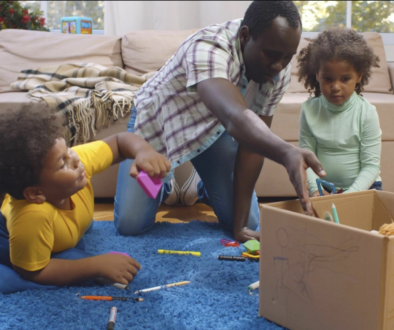How To Be An Emotions Coach

Emotions are universal experiences that touch each of us. They play a significant role in shaping our actions and influencing our learning process. Feelings are a natural part of who we are. But how do children learn about emotions?
Emotion coaching is a parenting technique that helps children understand their feelings. It’s the practice of tuning into children’s feelings, and helping kids learn to cope with and self-regulate negative emotions like sadness, anger, and fear. When parents use this technique, their children learn how emotions work and how to react to feelings in healthy ways.
According to Dr. John Gottman’s Emotion Coaching: The Heart of Parenting, the five essential steps of Emotion Coaching include:
- Being aware of your child’s emotions.
- Recognizing your child’s expression of emotion as a perfect moment for intimacy and teaching.
- Listening with empathy and validating your child’s feelings.
- Helping your child learn to label their emotions with words.
- Setting limits when you are helping your child to solve problems or deal with upsetting situations appropriately.
Here are some ways to become an Emotions Coach:
Foster a close and trusting relationship with your child. A strong connection will make it easier for them to open up about their emotions. Teach emotional vocabulary by helping your child identify and label their emotions. Let your child know that their emotions are valid, even if you don’t necessarily agree with the cause. This helps them feel understood and accepted. This can be done through conversation, storytelling, or using books and resources that focus on emotions.
Model healthy emotional expression. Children often learn by observing their parents. Create an open and non-judgmental environment where your child feels comfortable expressing their feelings.
Listen actively and validate their emotions. Provide your child with healthy coping mechanisms for dealing with difficult emotions. This could include deep breathing, taking a break, engaging in a favorite activity, or talking to someone they trust. Designating a quiet and comfortable space where your child can go to calm down when needed can be especially helpful for children who may need a break during intense emotional moments.
Finally, celebrate successes. Acknowledge and celebrate when your child successfully handles their emotions or uses a coping strategy effectively. Positive reinforcement can motivate continued growth.
Each child is unique, so it’s important to tailor your approach to their individual needs and temperament. By consistently practicing these strategies, you can help your child develop emotional intelligence and resilience.





